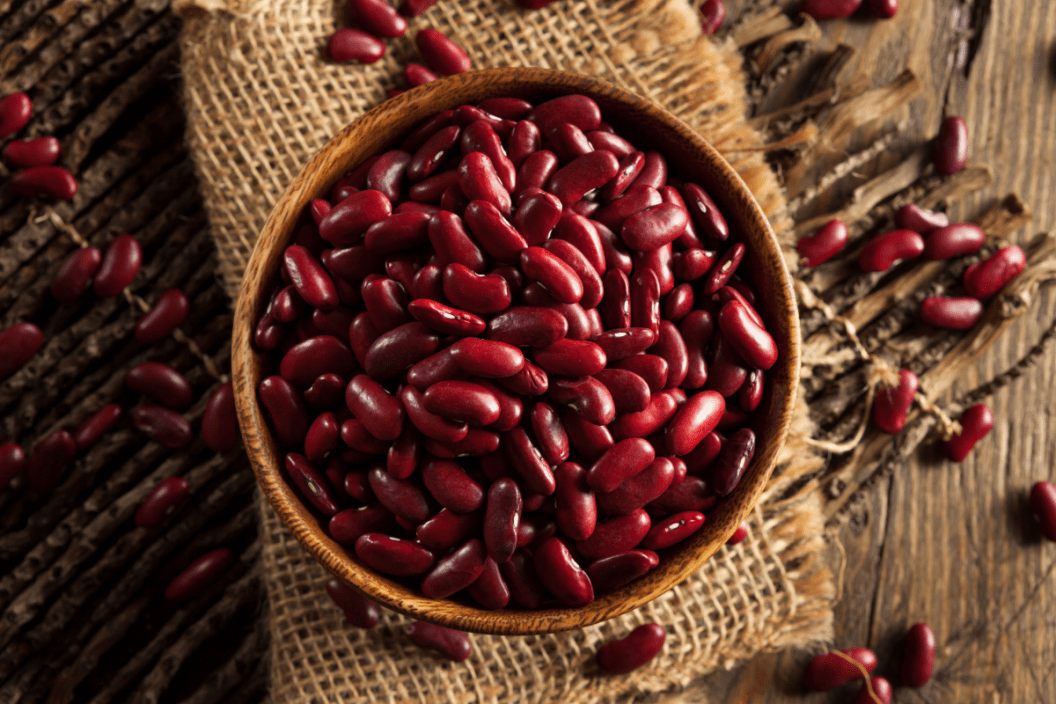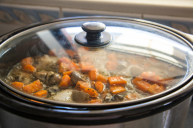Food poisoning is painful and uncomfortable, and anyone who has experienced it will do anything to avoid going through it again. We've all heard of getting food poisoning from seafood or dairy gone bad, but it can also be contracted from veggies, fruits and even beans. You can get Red Kidney Bean Poisoning from cooking red kidney beans at the wrong temperature, since kidney beans can be toxic.
Videos by Wide Open Country
This is surprising to those who haven't experienced it- how can a food as ubiquitous as red kidney beans cause someone to get sick? Unfortunately, it's true, and these legumes can cause far more damage than you might think.
What is Red Kidney Bean Poisoning?
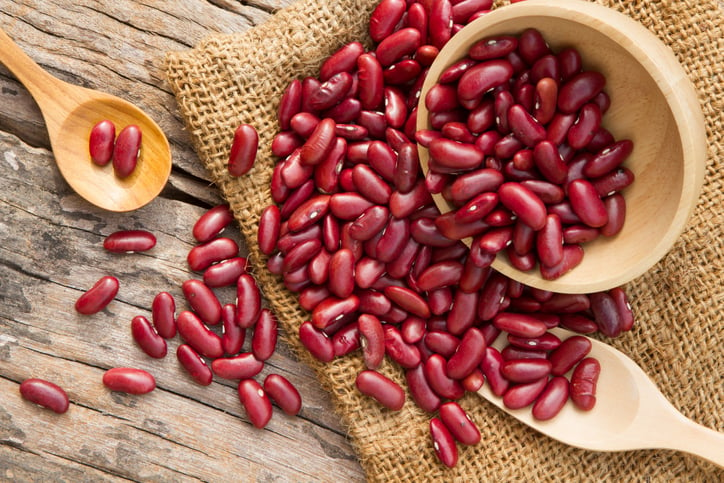
Getty Images
Red Kidney Bean Poisoning is caused by a toxic agent called Phytohaemagglutinin, or Kidney Bean Lectin. This is found in many types of beans, but it is most concentrated in red kidney beans, which are scientifically called Phaseolus vulgaris. These toxins are measured in units called hemagglutinating unit, or hau. Raw red kidney beans have 20,000 to 70,000 hau, but when cooked this decreases to 200 to 400 hau. Because of this, it's much safer to eat cooked kidney beans than raw.
Food poisoning happens more easily with red kidney beans than other species because of their high levels of toxicity. White kidney beans have about a third the amount of toxin that red beans do, while broad beans have about 5 to 10 percent the amount that red kidney beans contain. According to the U.S. Food and Drug Administration's Bad Bug Book, you can get red kidney bean poisoning from as few as 4 or 5 beans, which is why it's important to know how to avoid it!
Symptoms can start from from 1 to 3 hours after eating the beans, and they often begin with extreme nausea. This leads to vomiting, which can be severe in some cases. A few hours later, diarrhea develops, along with abdominal pain. Hospitalization for these symptoms is rare but not unheard of, but fortunately most people recover within a few hours of the onset of symptoms. Although Red Kidney Bean Poisoning is extremely unpleasant, it's not fatal. The sickness only lasts for a few hours, albeit painful ones.
How Do You Get It?
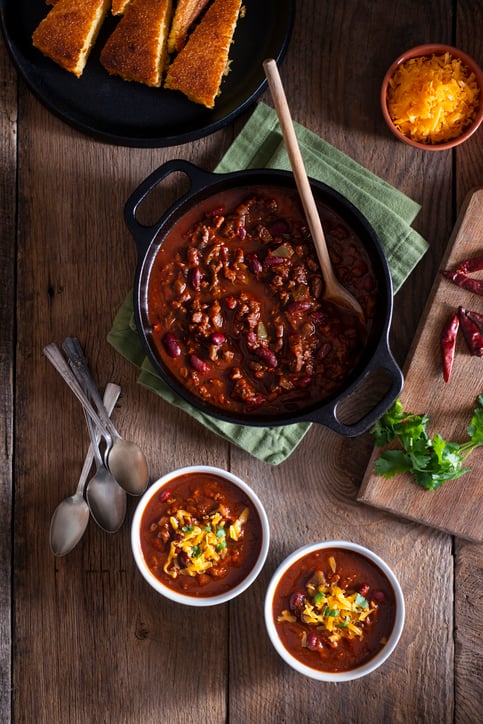
Getty Images
No one wants to go through the ordeal of nausea, vomiting, and diarrhea when all they signed up for was a bowl of chili. Fortunately, if you cook red kidney beans at the right temperature, you'll never have to worry about contracting Red Kidney Bean Poisoning. This poisoning is often caused by the ingestion of raw kidney beans, often an ingredient in salads.
Many outbreaks have also been linked to the use of slow cookers or crock pots, which are a popular way to make easy casseroles or soups. While these make the cooking process quicker and easier, they don't reach a high enough temperature to kill the lectin in beans. Kidney beans need to be cooked at higher than 80 degrees Celsius, or 176 degrees Fahrenheit.
In fact, heating kidney beans to 80 degrees Celsius increases the toxicity five-fold, making them even more toxic than raw beans. Many slow cookers reach a lower temperature than 75 degrees Celsius, so slow cooking is not the way to go when cooking red kidney beans. Like lentils and black beans, red kidney beans are often bought dry, soaked overnight, and then cooked the next day. However, unlike other legumes, you have to be careful with how you cook your red kidney beans.
How to Safely Enjoy Red Kidney Beans!
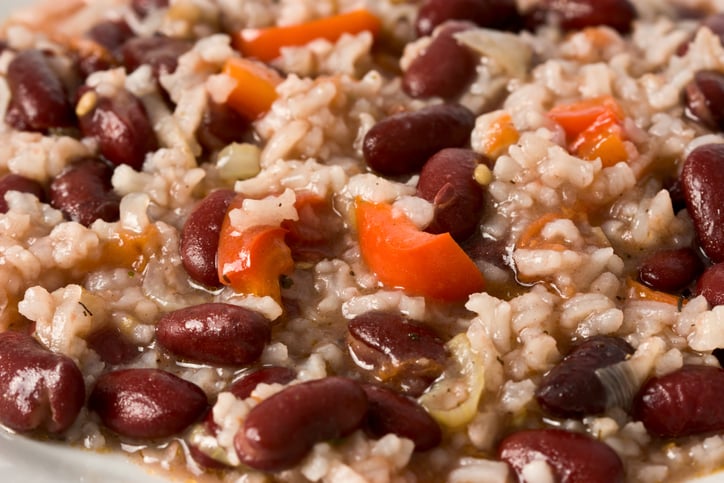
Getty Images
To follow food safety guidelines, it's safest to cook kidney beans on the stovetop before eating them. Soak the beans for at least five hours in water, then drain them when you're ready to cook. Boil the beans in a pot of fresh water for at least 30 minutes, ensuring that they are at their boiling point the entire time. While research shows that you need to boil them at 212 degrees Fahrenheit for 10 minutes, dietitians recommend cooking them for 30 minutes. Better safe than sorry!
